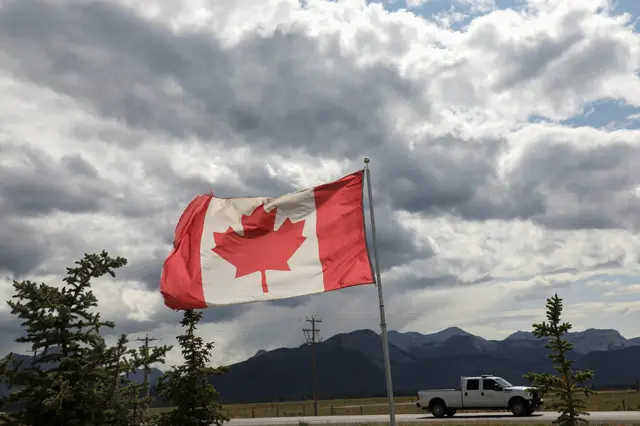Like Europe, Canada is seeking to attract top United States scientists who may wish to avoid President Donald Trump's crackdown on universities and research institutions.
But to succeed, Canada will need to summon something it has at times lacked, namely "bold ambition", the head of the country's largest hospital chain told Agence France-Presse.
Trump's funding cuts for scientific research are freeing up talent and "creating a once-in-a-lifetime opportunity" to recruit, said Kevin Smith, chief executive of Toronto's University Health Network.
To seize that opportunity, Canada has to ditch its traditional "incrementalist" approach, he said. "Let's not say good enough is good enough. Let's say excellent is where we need to go."
Experts say Trump's policies could trigger a tectonic shift in the global competition for the world's brightest minds.
For decades, deep-pocketed US universities, backed by federal support, have recruited top talent, including in biomedical research.
However, the Trump administration has slashed billions of dollars in research grants, affecting various institutions, including Harvard University, most notably.
Programs affected by the National Institutes of Health's cuts include studies on gender, the health effects of global warming, Alzheimer's disease, and cancer.
France and the European Union are already trying to woo disgruntled US researchers.
European Commission President Ursula von der Leyen said last month that the EU would launch a new incentives package worth 500 million euros ($575 million) to make the 27-member bloc "a magnet for researchers".
'Well placed'
Smith and the University Health Network's vice-president for science and research, Brad Wouters, argued that Canada — and particularly its largest city Toronto — are well placed to compete for US talent.
English-speaking, culturally familiar, and geographically close to major US research centers in New England and New York, Toronto boasts a hospital network and research ecosystem regularly ranked among the world's best.
The city has already poached three high-profile academics from Yale University, though all work in the arts.
The group, who study fascism, announced last month in a stirring New York Times video that they were leaving the US to take up positions in Toronto.
"I'm leaving for the University of Toronto because I want to do my work without the fear that I will be punished," one of the professors, Jason Stanley, said in the video.
Wouters told AFP that since Trump's election, the University Health Network "started to see a talent pool that was a notch higher than what we normally see" for vacant positions, with leading US-based scientists initiating inquiries about opportunities in Toronto.
The network has launched a plan to create 100 medical research positions through its own fundraising, and wants institutions across Canada to attract 1,000 new scientists.
Reaching that target will require government support and confronting an ingrained Canadian mindset that prioritizes sharing healthcare resources equally across the vast country.
The plan will face "a bit of a collision between the peanut butter spread of equality versus elitism", Smith said.
"That isn't always easy for governments or for elected officials ... but we're pretty hopeful."
Agencies via Xinhua
China Daily Global
 简体中文
简体中文

